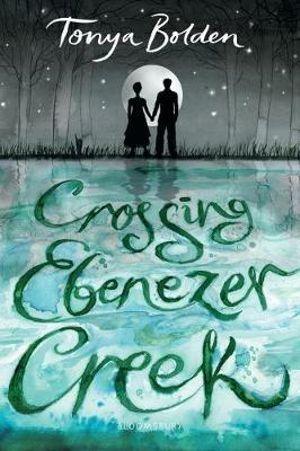Tonya Bolden, Crossing Ebenezer Creek, Bloomsbury, August 2018, 230 pp., $14.99 (pbk), ISBN 9781681196992
This is a most interesting book, dealing with an incident in America’s history of which I knew nothing before reading this novel. During General Sherman’s ‘March to the Sea’, during the American Civil War, many freed slaves joined the Union soldiers on the trek south. When they came to Ebenezer Creek, just outside Savannah, Georgia, the soldiers crossed on a hastily made pontoon bridge which was, on the orders of General Jefferson Davis, removed before the freed slaves (who were, to all intents and purposes, refugees) had a chance to cross. Many attempted to swim across and many of these drowned. Many of those who could not cross were returned to slavery.
The author, who says she too was ignorant of this incident before coming across it almost accidentally, has used this historical background to weave a believable and moving story of a group of freed slaves caught up in this terrible act of betrayal. The march they join is long and arduous and ends in such a tragic way at the river. Most of the freed slaves we have come to know over the course of the book are swept away. They have walked and struggled along the way, living in hope of a future away from the tyranny of slavery. These characters are well-drawn and believable and are quite varied as we also see some of the Union soldiers as they interact with the former slaves, some of whom have been permanently damaged physically or mentally by their life in slavery. Their fear of being returned to bondage is palpable but they dream of a new life, perhaps running a shop or developing a small farm of their own.
Bolden does not labour the point but she does include a number of scenes where the cruelty of some slave owners is made clear – and a number of these incidents happen to the parents of Mariah, the main character of the story. The story also shows clearly that no side in a war is all good; soldiers on both sides commit dreadful acts and many Union soldiers were racist and regarded Afro-Americans as inferior to themselves.
This is an excellent piece of historical fiction, enhanced by the factual information which the author includes in her notes. It will be of interest to readers, even those who are not familiar with the American Civil War.
Reviewed by Margot Hillel






